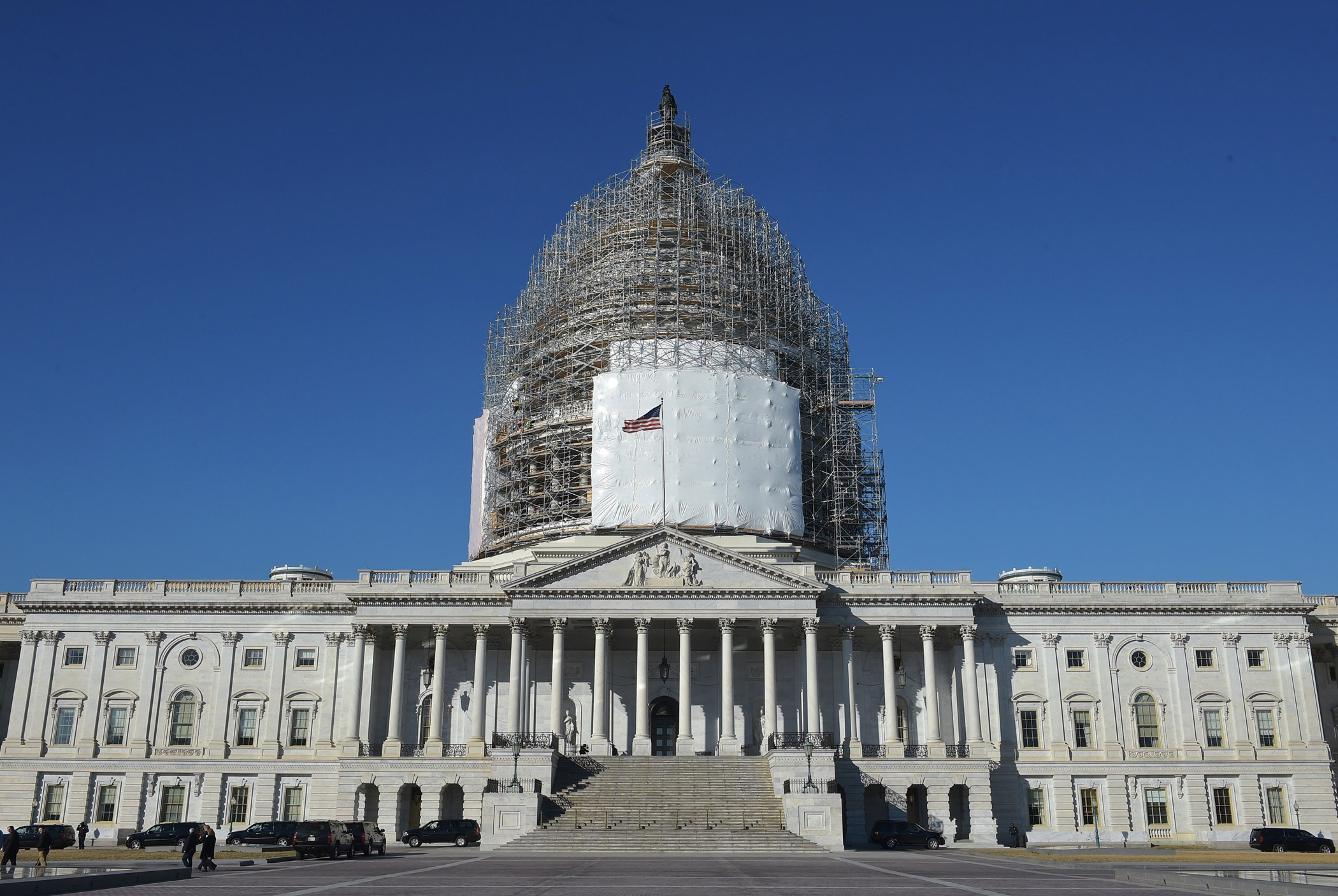
Here we go again. It’s the end of the year, and that means it’s time to monkey with marquee financial legislation. Or at least try to.
You may recall the last-minute rider that was pushed into the federal spending bill at the end 2014. The bit of legislation in question took up just 85 lines of the 1,600-page spending bill. The problem was that about 70 of those lines seemed to be written by financial industry lobbyists eager to overturn legislation that would have forced banks some of their riskiest and most profitable activities—default swaps, commodities, and derivatives—to new entities outside parent firms guaranteed by taxpayer money. It was an attack on one of the key provisions in Dodd-Frank aimed at ending the “too big to fail” problem. (Or at least the part of it involving the socialization of risk and the privatization of profits.)
Now it seems that using the budget bill to water down Dodd-Frank is becoming business as usual. Republicans are pushing a number of potential reform rollbacks as part of the usual end-of-year, closed-door haggling over spending packages. In particular, a bill sponsored by Senator Richard Shelby, S. 1484, has been attached to the 2016 spending bill. Some of the many proposed changes to Dodd Frank in that bill include increasing the amount of assets that have to be held by a bank for it to be designated a SIFI, or a “structurally important financial institution,” one that is presumably too big to fail.
Unfortunately, the new rule would leave out key banks with big international presences, like State Street or Bank of NY Mellon, ones that are clearly important global institutions. It would also roll back the Consumer Financial Protection Bureau’s “qualified mortgage” rules, which aim to cut some of the predatory lending practices from the 2008 crisis. It would overhaul the Federal Reserve governance system, possibly making the Fed less independent and more political, as well as undercut regulators’ ability to monitor “shadow banking,” the firms and institutions like hedge funds, asset managers, and money market funds that fall outside the normal banking system but are where many experts believe the next financial crisis will begin.
Democratic Senators Sherrod Brown and Elizabeth Warren as well as Representative Maxine Waters are fighting the attempts to push Dodd-Frank carve outs into the budget bill (which, if vetoed by the President, could put the government at risk of shutdown). As Senator Brown wrote in a protest letter to Senator Shelby a few months back, the legislation “even deregulates the financial system beyond where it was in 2007 and 2008.” The battle will likely heat up by next week, as the government runs out of money on Dec 11th.
Last year, when a similar argument led to the sneaky swaps carve out, Jamie Dimon, the head of JPMorgan Chase, personally called various lawmakers to encourage them to keep it in and vote the bill through, cleverly flipping the debate to focus on the fact that if Congress didn’t pass the spending bill, the United States could be in for another government shutdown, creating the sort of gridlock that had shaved points off economic growth and undermined trust in democracy itself back in October 2013. In the end, Dimon and the banks won. It was masterful jujitsu. Dimon had managed to convince lawmakers that they, not the financial industry, risked undermining trust in the entire system of democratic capitalism if they didn’t do as he urged.
Not like that argument was tough to make, given public disenchantment with Washington, after years of ugly partisan politics and gross mishandling of the post-crisis cleanup of the financial system, as well as the government’s role in decades of deregulation, easy money monetary policy, and poorly enforced financial standards leading up to the meltdown. Still, Dimon’s feat certainly reflected who was still in charge of Beltway money politics—the financial industry itself. “I thought that, when Dodd-Frank started, that the banks would not succeed in influencing it,” said Stanley Fischer, the vice chairman of the Fed, the day after the bill cleared the House of Representatives. “Boy, was I wrong.” Let’s hope he will be wrong this time around.
More Must-Reads from TIME
- Donald Trump Is TIME's 2024 Person of the Year
- Why We Chose Trump as Person of the Year
- Is Intermittent Fasting Good or Bad for You?
- The 100 Must-Read Books of 2024
- The 20 Best Christmas TV Episodes
- Column: If Optimism Feels Ridiculous Now, Try Hope
- The Future of Climate Action Is Trade Policy
- Merle Bombardieri Is Helping People Make the Baby Decision
Contact us at letters@time.com